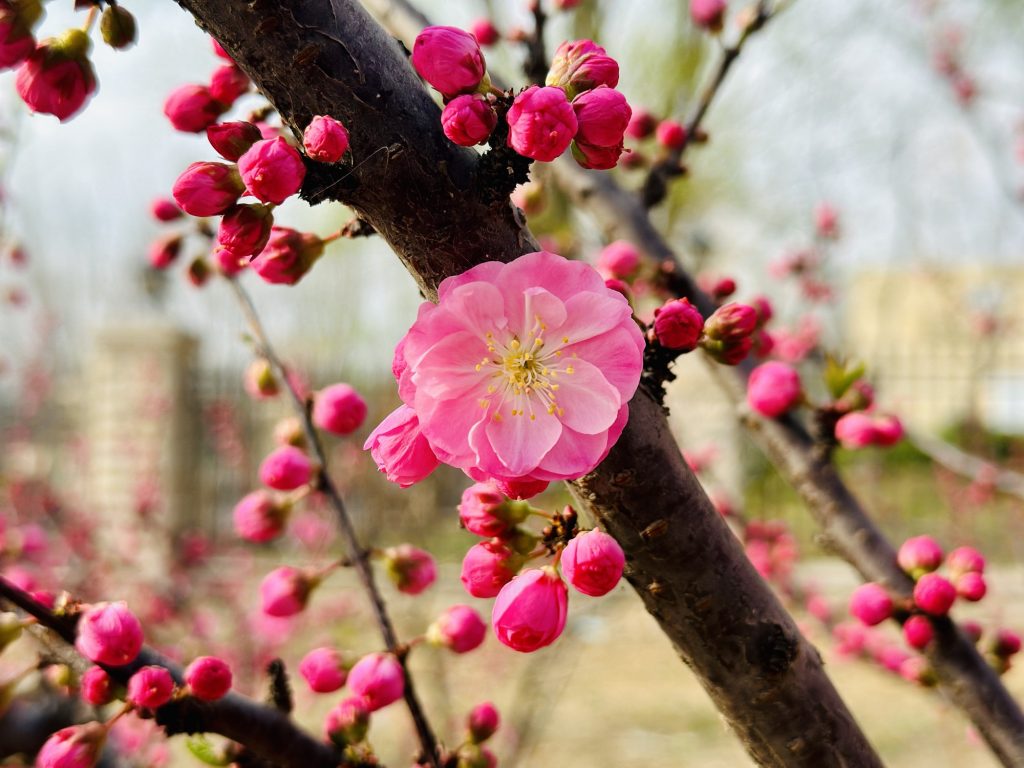
If three years of studying literature at Cambridge University taught me anything at all, it is that poems must speak, or more accurately ‘sing’, for themselves and not speak through the explanations of literary critics. It’s finally Spring, the season that has been the inspiration for myriads of poetry in both Chinese and English In this Blog I’d like to present a sample of seasonally themed poems from both cultures in the hope that they resonate with you in your own encounters with vernal scenes. Having said this, I feel the need to preface the lyrics with a few thoughts on the similarities and differences, the correspondences between poetry in Chinese and poetry in English, but please feel free to skip straight to the poems themselves.
We should start by simply remarking how important poetry has been in the development of both cultures. Indeed, poetry has been the life-blood of the growth of both languages. The English language is what it is today because it was enriched by the poetic inventiveness of William Shakespeare who either created or re-defined phrases that are now common-place such as ‘cold blooded’, ‘to be a laughing stock’ or ‘vanish into thin air’. Communication in Chinese is impossible unless you are familiar with 成语 chéngyǔ, which are idioms which carry poetic associations and meanings. One of my favourites of these is 白驹过隙 báijūguòxì, literally meaning, ‘a white horses flashes past a crack in the wall’ which corresponds to ‘how time flies’ in English.
Poetry has a long and distinguished history in both cultures. The earliest known collection of poems in Chinese is the Shī Jīng, or ‘Book of Songs’, which was made in the Western Zhou Dynasty, in about 600 BCE. In England as soon as a recognisable English language began to form in the 7th century CE, poetry emerges, the first example being ‘The Hymn of Caedmon’. Just as in England, one way of understanding history is to see it through the lens of the evolution of different poetic forms and themes. For example, while in England we associate the eight century CE with ‘Beowulf’ and other examples of epic poetry, narrating heroic deeds, in China the same period is remembered as the time of the ‘T’ang poets’, such as Li Bai, Du Fu and Wang Wei who wrote lyric poems concerning nature, friendship and the ideas of Buddhism and Daoism.
From the roots of poetry in both cultures at this time we learn that poetry was a performance, rather than a written art. In fact, in both poetry cultures we find a continuous pendulum between poetry as an elite, and rather academic art-form and poetry as a form of expression of and for, all. In China in the Yuan Dynasty from 1280 to 1367, the most common form of poetry was based on songs written for popular operas. Around 1380 in England we find the poem ‘The Dream of Piers Plowman’, written as though they were the words of a simple hermit and in which the central character, Piers, is a humble peasant.
To conclude this brief overview of the history of poetry in both cultures, we should say that women poets have played very significant roles, all too often forgotten or ignored. In China the talent of a Song Dynasty female poet called Lǐ Qīngzhào is now better recognised than at any point in the centuries since her death. However, Lǐ is only one of countless women’s voices that deserve to be better heard. And the same silences fall heavily in English poetry. The literary canon is still weaponised with more ‘great men’ than simply ‘great poets’, regardless of gender.
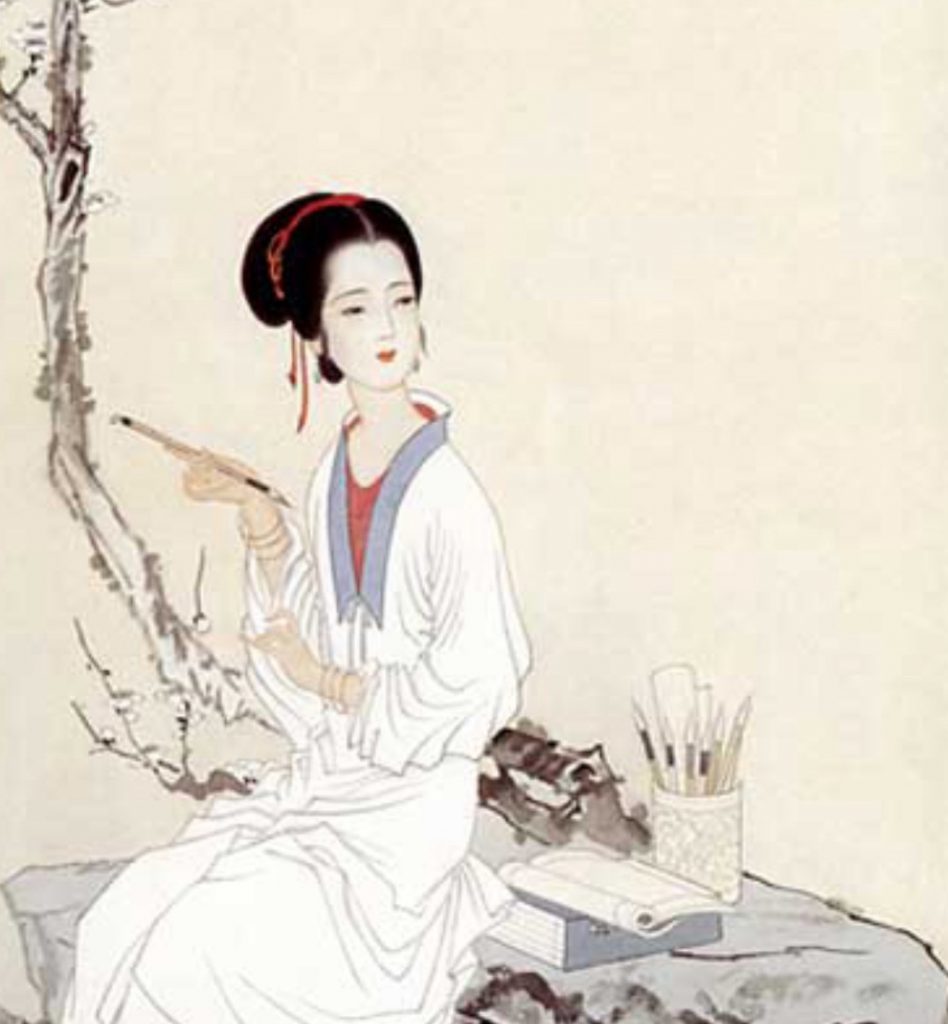
After this quick overview of the cultural aspects of poetry in Chinese and English, let’s focus in on poetry related to Spring. As soon as the word ‘spring’ or its Chinese equivalent, ‘chūntiān’ is out of our mouths, there follows an outburst of poetic ‘awakenings’ and ‘re-awakenings’. Amazingly Beijing is on the same latitude (39 degrees north) as Madrid, New York and Naples in Italy. Spring seems to start here at the same time as in Britain, that is the final weeks of March, first two weeks of April. Of course, China is a vast country. Last week I was in the far south, in the city of Shenzehn, where, never-mind Spring, it was already Summer! This means that Spring in both England and China is preceded by long, hard winters when there is nothing for poets to do except hibernate, metaphorically of course.
Spring poems in both cultures are full of the surprise and wonder of rediscovering that nature is still there and that it’s time to go back outside. If you look below at the lines from the General Prologue to Geoffrey Chaucer’s ‘Canterbury Tales’ and Chūn yè xǐ yǔ (春夜喜雨), ‘Happy Rain on a Spring Night’ by Du Fu, I think you’ll see what I mean. There are even echoes between the cultures of the melancholy that being surrounded by the restorative beauty of Spring can bring. You can compare the modernist pessimism of TS Eliot’s opening lines from ‘The Waste Land’
‘April is the cruellest month, breeding
Lilacs out of the dead land, mixing
Memory and desire, stirring
Dull roots with spring rain.
Winter kept us warm, covering
Earth in forgetful snow, feeding
A little life with dried tubers.’
with the widowed loneliness in Li Qingzhao’s lyric, 武陵春, ‘Spring in Wuling’.
‘The wind has subsided,
Faded are all the flowers
In the muddy earth,
A lingering fragrance of petals.
Dusk falls. I’m in no mood to comb my hair.
Things remain, but all is lost
Nor he’s no more.
Tears choke my words.
I hear “Twin ~rooks'” is still sweet
With the breath of spring.
How I too, love to go for a row,
On a light skiff.
I only fear at “Twin Brooks” my grasshopper of a boat
Wouldn’t be able to bear
Such a weight of grief.’
See what correspondences about the different moods and emotions of Spring you can find in the poems below.
Now let’s look deeper into some of the different ideas about the relationships between humans and nature in these poems. The first thing I’d suggest that you look out for is the amount of naturalistic detail you find in the descriptions of poems in the two cultures. Nature poems in the Western tradition can broadly be compared to oil paintings, what is prized is the ability of the artist to realistically ‘copy’ what can be observed in nature. Attention to detail is just as valued in Chinese aesthetics, but there is a very different sense of the reality of the natural world in Chinese poems that can be compared to the sensibility of ink wash painting. Looking at one of these paintings, it becomes clear that there is a balance between finely observed and expressed detail of what can be seen and an emptiness that cannot be seen.
Actually, these differences in ideas of beauty can be linked back to philosophy. The relationship between humanity and the natural world is right at the heart of Chinese and Western thinking, but in the West there is a focus on the idea that everything in nature was created by a god, and that describing details in nature is a form of praise. There is no such thinking in China. Neither Buddhism, Confucianism, Daoism or modern Socialism have a creation myth. Both Daoist and Buddhist thinking promotes the importance of understanding the idea of ‘emptiness’, which rather than seeing nature as spiritual and eternal, sees life as characterised by impermanence and change.
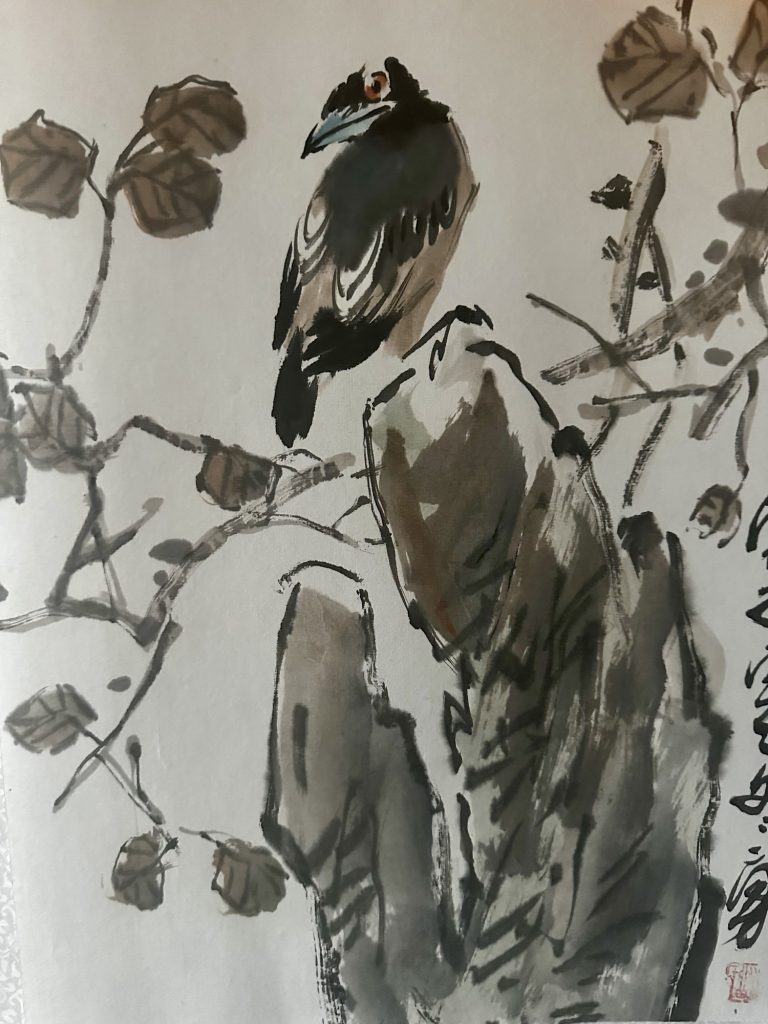
One final thought before we get to the poems. When you look at these poems keep an eye on the balance between the natural world and the human world. There is a tendency in western poetry that takes nature as its theme to still put humans and human concerns above a focus on nature herself. This could be seen to be a result of longstanding ideas in the west, both before and after Charles Darwin, to see the natural world as existing in a hierarchy, with humans either as the god created guardians of nature, or with humans as the top of evolution’s tree. The Chinese poetical ‘yīn’ to the Western ‘yáng’ is to see or to seek for a ‘harmony’ between humanity and nature. A very common feature of English nature poetry is the use of metaphor or simile, to compare features in nature back to humans. Alert to this, we can see it immediately in the famous Spring poem by William Wordsworth – ‘I wandered lonely as a Cloud’
‘ I wandered lonely as a cloud
That floats on high o’er vales and hills,
When all at once I saw a crowd,
A host, of golden daffodils…’
Looked at in this way it becomes clear that the ‘I’, the human presence in the poem, is more central than the daffodils themselves and furthermore that the daffodils are not naturally important, but through metaphor they are significant because they are a ‘host’, a word clearly linked them to Christian ideas of angels and spirituality.
I think this point becomes much clearer if we compare ‘Daffodils’ with a quintessential Chinese ‘nature’ poem, ‘Za-zen on Ching’ting Mountain’ by the poet Lǐ Bái:
‘The birds have vanished down the sky.
Now the last cloud drains away.
We sit together, the mountain and me,
until only the mountain remains.’
First of all, the importance of ‘emptiness’ in Chinese poet practice is very clear in this example I think. The various lines of the poem are like exquisite inked details in a ‘shān-shuǐ’, ‘mountain-water’, painting, with implied emptiness in the spaces between. The human and the natural exist in a balance of juxtaposition. The poet does not compare himself to the mountain either by metaphor or simile. And unlike the ‘I’ in the Wordsworth poem blessed by the host of Daffodils, in the Lǐ Bái poem there is no ‘I’, and in the end the human is dissolved into the natural scene.
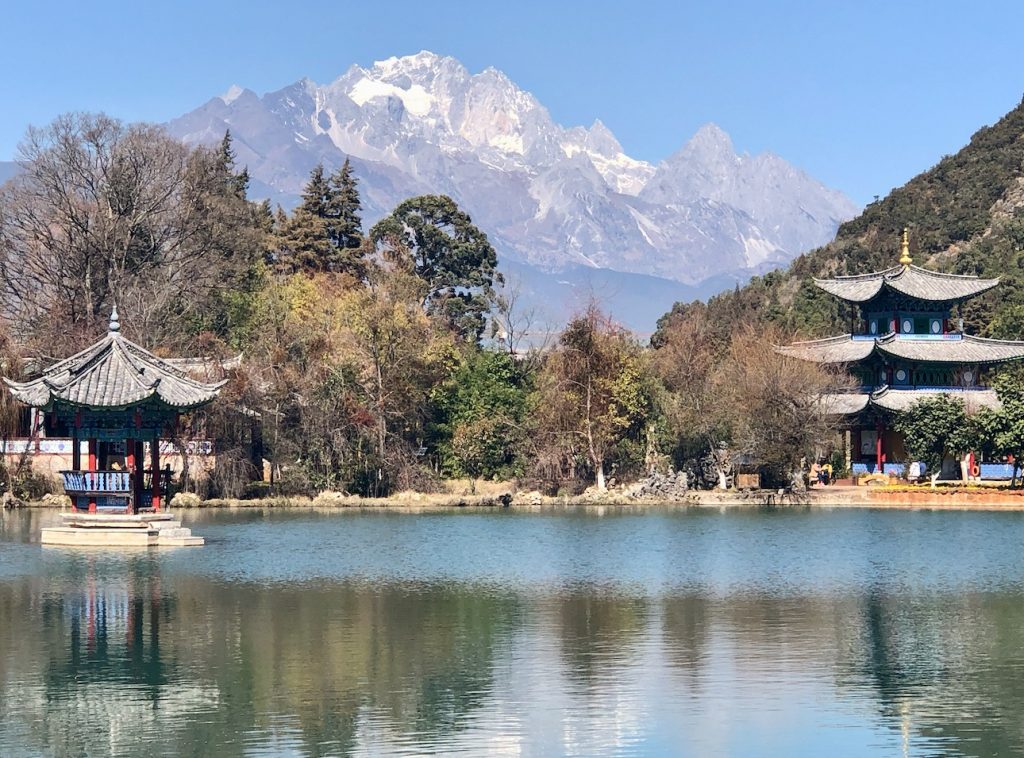
Poets like Wordsworth are often seen as belonging to a tradition we are starting to call ‘eco-poetry’, that is poetry that sets out to heal the wound between the human world and the natural world. I have no problem with that claim, but personally I believe some poems in the Chinese tradition have an even more potent natural medicine. Instead of making us the outside observers of a sublime or transcendent nature, such poems dissolve humans back into their place in nature, as just another part of eco-systems which depend on harmony, not hierarchy.
Oh dear, I hope my poetry lesson didn’t send you to sleep. Enough, let’s go outside and get to the poetry.
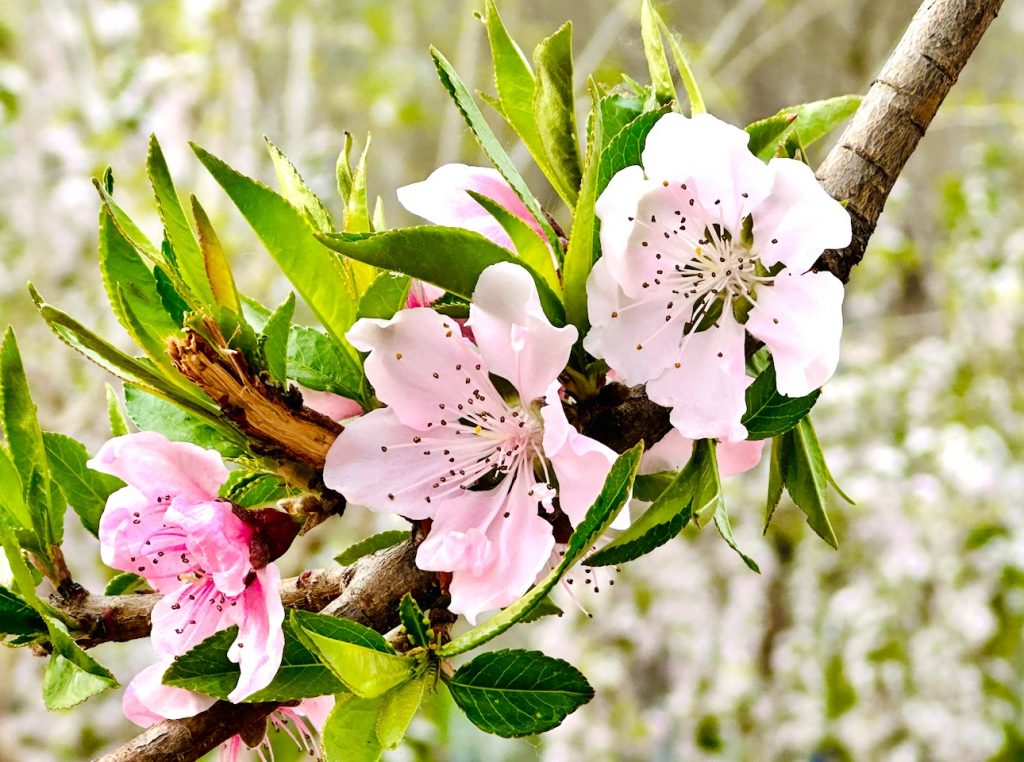
Spring Poem 1 :
‘Late Spring’ – Lǐ Qīngzhào
Spring colours, mild and rippling,
Usher in Cold Food Day.
Wisps of dying incense smoke
Wreathe the jade burner.
I wake from my dream to find myself
Still wearing the gold-petalled hair-piece,
Reclined on my pillows.
Swallows have not come back from the sea,
People are already competing in games of grass.
Riverside plums past their bloom,
Catkins appear on the willows.
Rain drizzles as twilight deepens,
Wetting the garden swing.
Note : ‘Cold Food Day’ is another name for ‘Qing Ming’ – the tomb sweeping festival day.
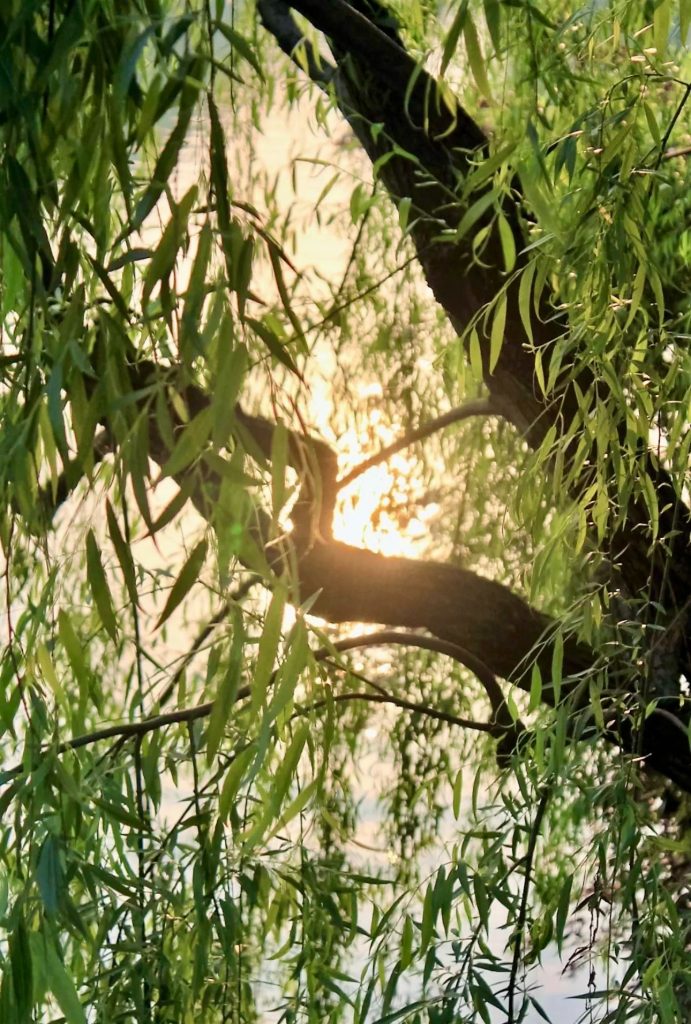
Spring Poem 2
‘Spring’ – Gerard Manley Hopkins
Nothing is so beautiful as Spring –
When weeds, in wheels, shoot long and lovely and lush;
Thrush’s eggs look little low heavens, and thrush
Through the echoing timber does so rinse and wring
The ear, it strikes like lightnings to hear him sing;
The glassy pear-tree leaves and blooms, they brush
The descending blue; that blue is all in a rush
With richness; the racing lambs too have fair their fling.
What is all this juice and all this joy?
A strain of the earth’s sweet being in the beginning
In Eden garden. – Have, get, before it cloy,
Before it cloud, Christ, lord, and sour with sinning,
Innocent mind and Mayday in girl and boy,
Most, O maid’s child, thy choice and worthy the winning.
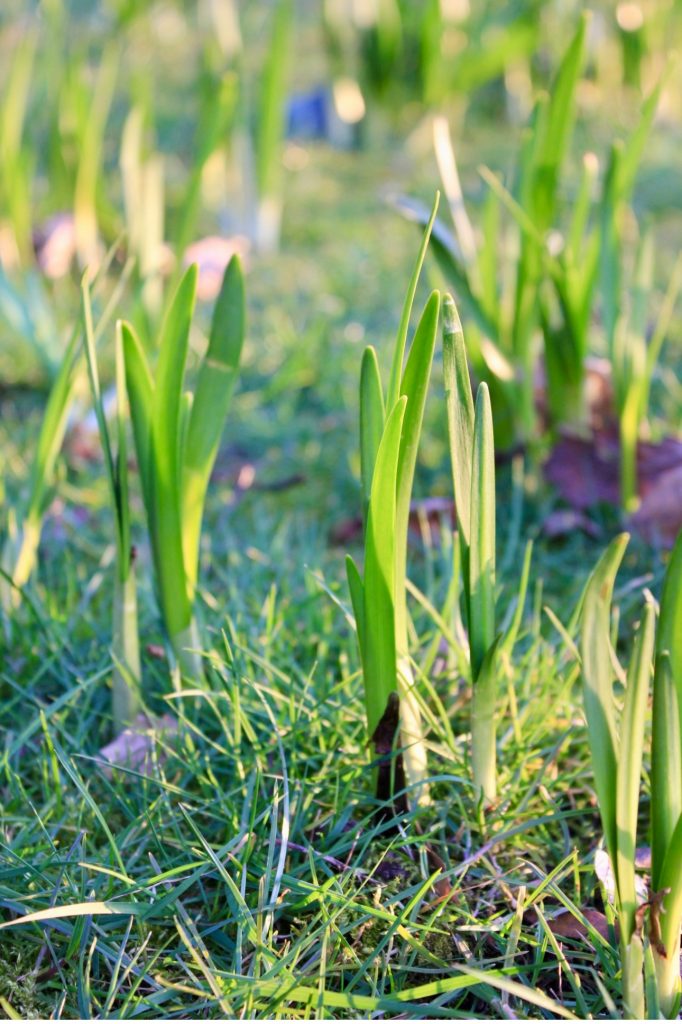
Spring Poem 3
Chūn xiǎo (春晓) – Spring Morning , by Meng Haoran (689-740)
Chūn mián bù jué xiǎo / 春 眠 不 觉 晓,
This spring morning in bed I’m still lying,
chù chù wén tí niǎo / 处 处 闻 啼 鸟。
not to awake till the birds are crying.
Yè lái fēng yǔ sheng / 夜 来 风 雨 声,
After one night of wind and showers,
huā luò zhī duō shǎo / 花 落 知 多 少。
how many are the fallen flowers?
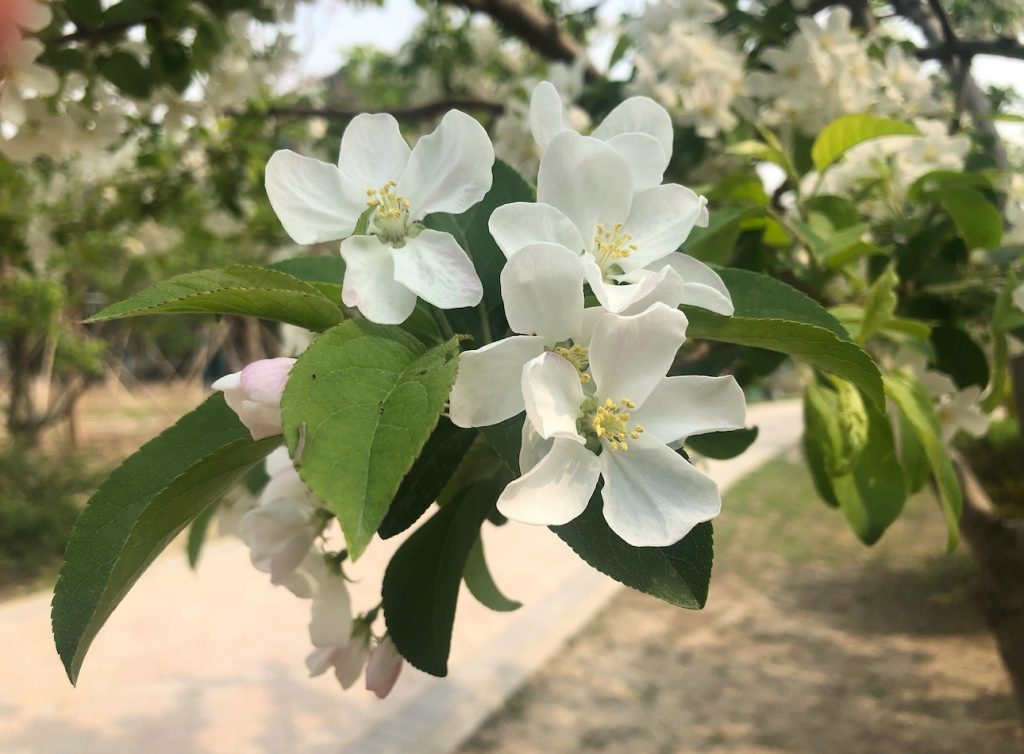
A lingering fragrance of petals.
Spring Poem 4
Geoffrey Chaucer – General Prologue to the Canterbury Tales
Whan that Aprille with his shoures soote,
The droghte of March hath perced to the roote,
And bathed every veyne in swich licóur
Of which vertú engendred is the flour;
Whan Zephirus eek with his swete breeth
Inspired hath in every holt and heeth
The tendre croppes, and the yonge sonne
Hath in the Ram his halfe cours y-ronne,
And smale foweles maken melodye,
That slepen al the nyght with open ye,
So priketh hem Natúre in hir corages,
Thanne longen folk to goon on pilgrimages,
And palmeres for to seken straunge strondes,
To ferne halwes, kowthe in sondry londes;
And specially, from every shires ende
Of Engelond, to Caunterbury they wende,
The hooly blisful martir for to seke,
That hem hath holpen whan that they were seeke.
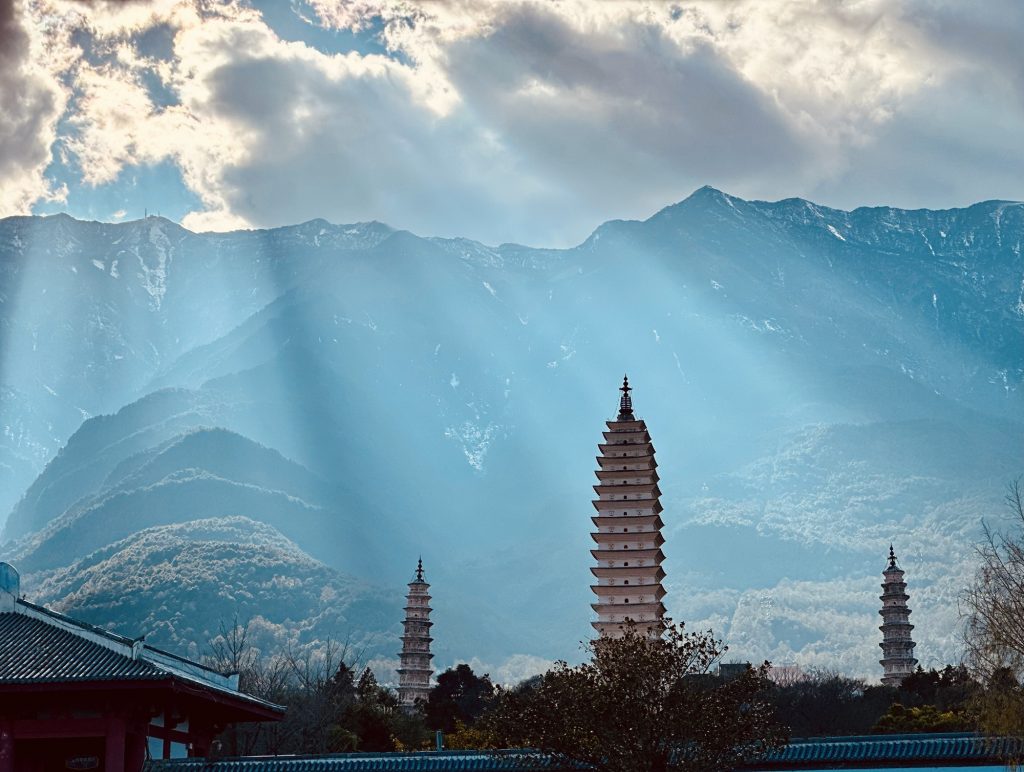
Thanne longen folk to goon on pilgrimages
Spring Poem 5
Chūn yè xǐ yǔ (春夜喜雨) / Happy Rain on a Spring Night , Du Fu (712-770)
Hǎo yǔ zhī shí jié / 好雨知时节
The good rain knows its season,
dāng chūn nǎi fā sheng / 当春乃发生
when spring arrives, it brings life.
Suí fēng qián rù yè / 随风潜入夜
It follows the wind secretly into the night,
rùn wù xì wú sheng / 润物细无声
and moistens all things softly, without sound.
Yě jìng yún jū hēi / 野径云俱黑
On the country road, the clouds are all black,
jiāng chuán huǒ dú míng / 江船火独明
on a riverboat, a single fire bright.
Xiǎo kàn hóng shī chù / 晓看红湿处
At dawn one sees this place now red and wet,
huā zhòng jǐn guān chéng / 花重锦官城
the flowers are heavy in the brocade city.
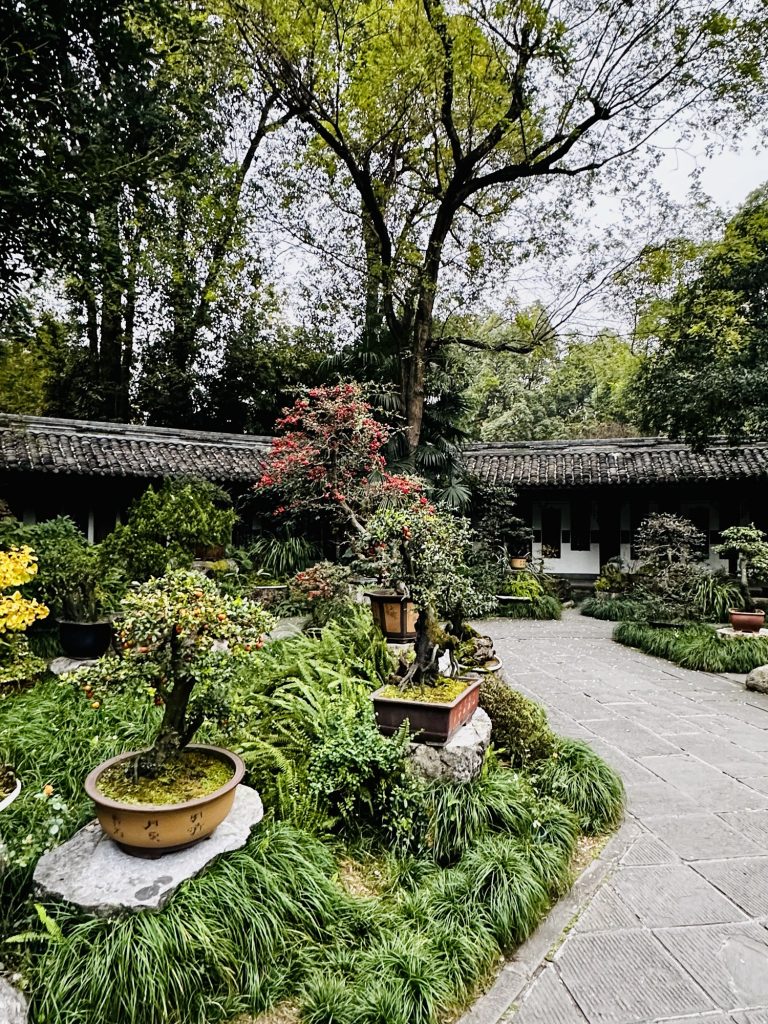
Du Fu Cottage (in Chengdu, Sichuan Province, a shrine built in the poet’smemory on the site where his modest house used to stand)
Spring Poem 6
As delicate as Spring is strong – the author.
as balanced as a mathematical solution
here in the classroom’s chill, you flower,
while in the powder playground snow
dull boys wrestle for passages of power.
the lightest dust glides from your chalk,
last fall of snow on quiet mountain peaks,
fragrant, intelligent as spring, your eyes
smile again, after cracks of winters lies;
a pure black waterfall of cascading hair
soars over deep pools of a curious stare;
your open mind moves over closed ground,
only last night they trampled the dead down.
young spring, you know love cannot grow,
where division has seeds of hate to sow.
Note:
The poem is dedicated to 李清照 – Li Qingzhao, a famous Chinese woman poet of the Song Dynasty, who wrote expressively of the suffering of love in a time of crisis – in her case the wars between the Jurchen and the Song in which her husband was killed.

Spring Poem 7
杂诗 – Wang Wei – Random Poem
君自故鄉來, 應知故鄉事。
來日綺窗前, 寒梅著花未
You who have come from my old country,
Tell me what has happened there?
Was the plum, when you passed my silken window,
Opening its first cold blossom?
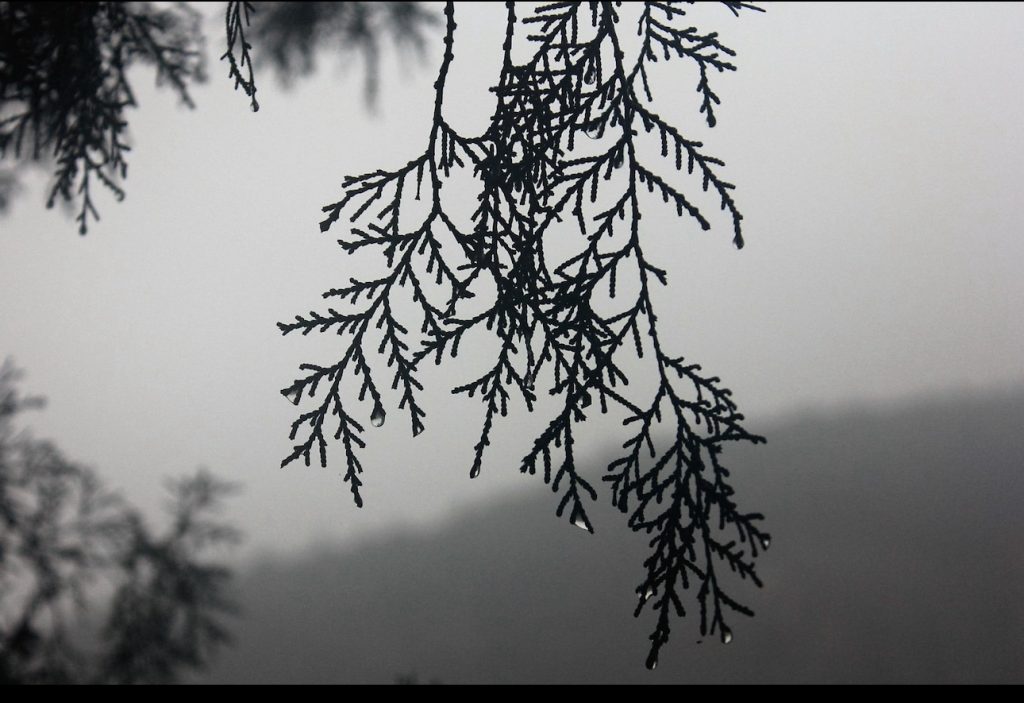
I hope you enjoyed our stroll through the Spring landscapes of poetry in China and Britain. Maybe it’s time to go back to some old favourites, or better still sprinkle word-seeds to grow poems of your own.
(All photographs are originals by the author)